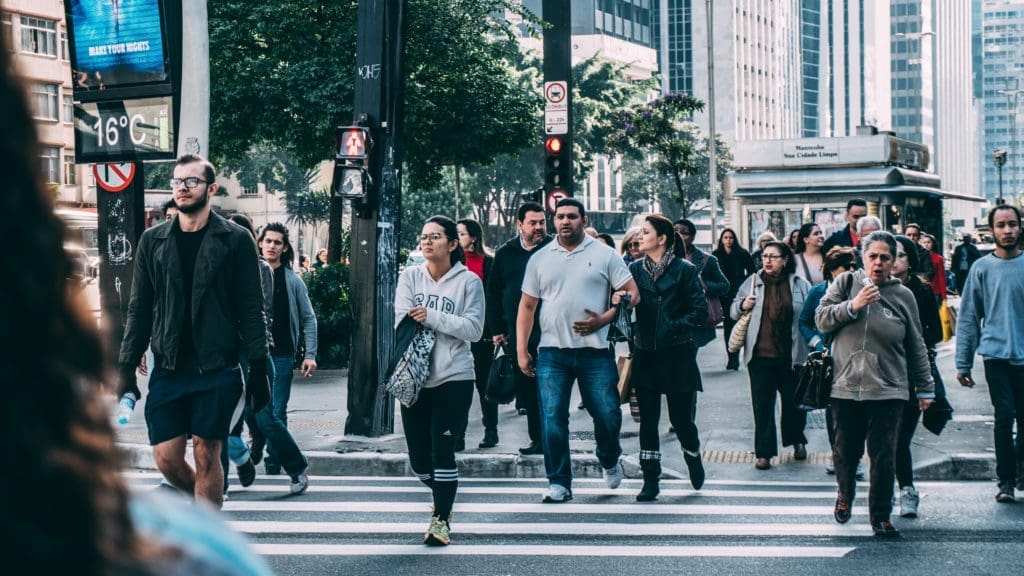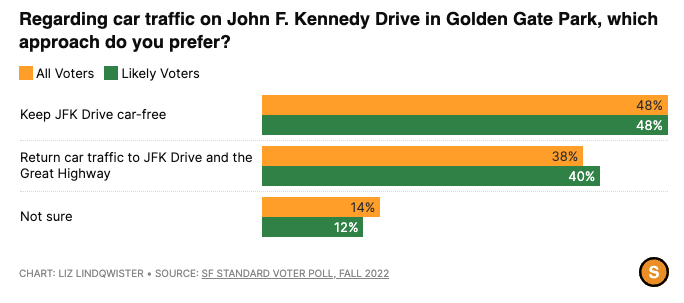
Spooky season is here (and so are the midterms, eeek!), and nothing is scarier than not having your voice heard during this election! Transit and walkability are on many ballots this year, and you do not want to miss the opportunity to make a difference in your community.
1. San Francisco, CA – Car Free JFK
Walk San Francisco has been advocating for a car-free JFK for the past few seasons in hopes that a car-free space will decrease pedestrian accidents and fatalities. There has been recent opposition that resulted in a ballot measure to remove 1.5 miles of car-free space on JFK Drive in Golden Gate Park. The space calls for a healthier, safer, and climate-friendly environment, one which over 300,000 people use on a monthly basis. If you would like to defeat the ballot measure to preserve car-free JFK, fill out this form and join the fight!
Supported by Walk San Francisco.

2. Denver, CO – Denver Deserves Sidewalks
The Denver Deserves Sidewalks initiative began as an organization advocating for public funding to repair and improve sidewalks in Denver. Their passion for accessibility, equitable, safe, and fair means of transportation is what rallied up advocates and locals to campaign it’s way to getting their proposal on the ballot. After getting enough signatures, the proposal for the city to adopt a sustainable program for ongoing repairs of sidewalks is now on the ballot. If passed, the funding would come from a fee charged to property owners, making the estimated timeline of overall improvements for fully functional sidewalks happen in 9 years in comparison to the 400 years it would’ve taken if policies stayed the same.
3. Massachusetts – Millionaires Tax
In Massachusetts, sharing is caring! The Fair Share Amendment will make an appearance on the ballot as question one for a vote on whether or not those making over $1 million dollars a year will be taxed. Records show that only 0.6% of households would be affected by the tax laws if passed. The accumulated funds from that tax amendment alone are estimated to be $2 billion a year, and would be allocated to education and transportation. The state has an extensive list of structurally dangerous bridges, roads, and trains. Voting yes on question one would improve the necessary need for safety and quality of public transportation, especially with public transit being the main source of transportation in many major cities.
4. Sacramento, CA – Measure A
Sacramento is looking to fund transportation projects, and it landed on the ballot Measure A. Measure A only needs 50% +1 to pass, and if that were to happen, Sacramento County’s sales tax would increase by 0.5% over a 40 year period. The intention of bettering public transit seems like a win for overall walkability, but not at the expense of BIPOC and disenfranchised communities who would struggle the most with the tax increase. The initiative has been opposed by advocacy groups, such as; the League of Women Voters, Sierra Club, United Latinos, Sacramento Taxpayers Association, and many more.
5. California: Proposition 30 – Income Tax for Electric Vehicles
California is looking for ways to take on climate change and improve public health, and they are bringing it to the polls this season to implement change. A “Yes” vote on Proposition 30 will do just that. This measure will increase its funding for programs to reduce air pollution, wildfire prevention, zero-emission vehicle purchase incentives, vehicle charging stations, etc. Similar to Massachusetts’ ballot initiative, the funding would come from taxing anyone who makes more than $2 million a year (0.2% of taxpayers), which may bring in a range of $3.5-$5 billion annually. The tax increase would end by January 2043 or earlier if greenhouse emissions are significantly reduced prior.
Transit Measures Roundup
Is there a transit measure near you? The American Public Transportation Association (APTA) has a nationwide roundup here.